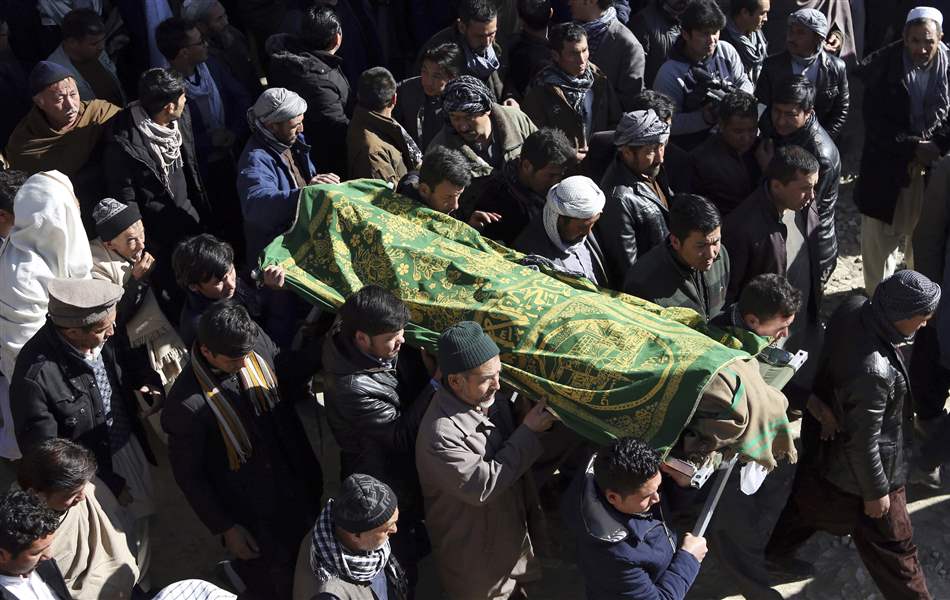
Unwelcome arrival
1/1/2018

People carry the coffin of a relative who died in Thursday's suicide attack on a Shiite cultural center in Kabul, Afghanistan, on Friday.
ASSOCIATED PRESS
The situation in Afghanistan, where America has been entangled since 2001, has become worse. Attacks on Christmas and a more costly one in terms of casualties Thursday, estimated to have killed at least 40, were carried out and claimed by the Islamic State, a relatively new player in the Afghanistan conflict. Until now the principal Afghan forces’ and American enemies in Afghanistan were the Taliban and a waning al-Qaida.
The IS target on Thursday was a Shiite Muslim cultural center. The IS consists almost entirely of radical Sunnis. What this means is that the rivalry between the Saudi Arabian-led extremist Sunnis and the Iranian-backed Shiites that plagues the Middle East, especially reflected in the war in Yemen, has made its way to Afghanistan. With the IS having lost Mosul in Iraq and Raqqa in Syria, it is likely that more of its fighters have made their way to Afghanistan. These facts will make it even harder than it is already to reach any kind of negotiated peace among Afghan elements.
Click here to view more Blade editorials
It also almost certainly means that Saudi elements have dealt themselves into the Afghan struggle through the IS, with funding and probably weapons as well, which they frequently acquire from the United States.
Elements in the Afghan conflict, as it stands now in America’s 18th year there, include the predominantly Pashtun government of President Ashraf Ghani, its sometime-partner Tajik opposition, the Taliban, the Islamic State, the remnants of al-Qaida, and whatever the puppet-masters of some groups in bordering Pakistan want to see in Afghanistan, and even India and China, not to mention Saudi Arabia and the United States.
Prospects of getting all these parties to sit down at the same table to negotiate a solution to the Afghanistan war are so dim that they seem like a post-turkey dinner pipe dream. Endless war, or at least war lasting far into the future, seems much more likely. Why we hang around for this, imagining that we can influence the outcome to America’s advantage, continuing to pour money in, is entirely unclear.